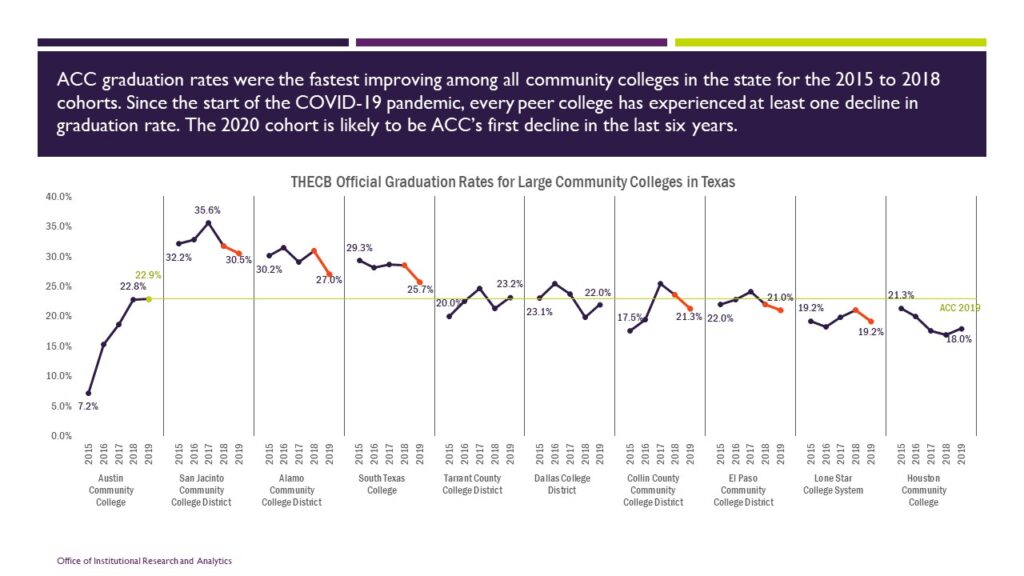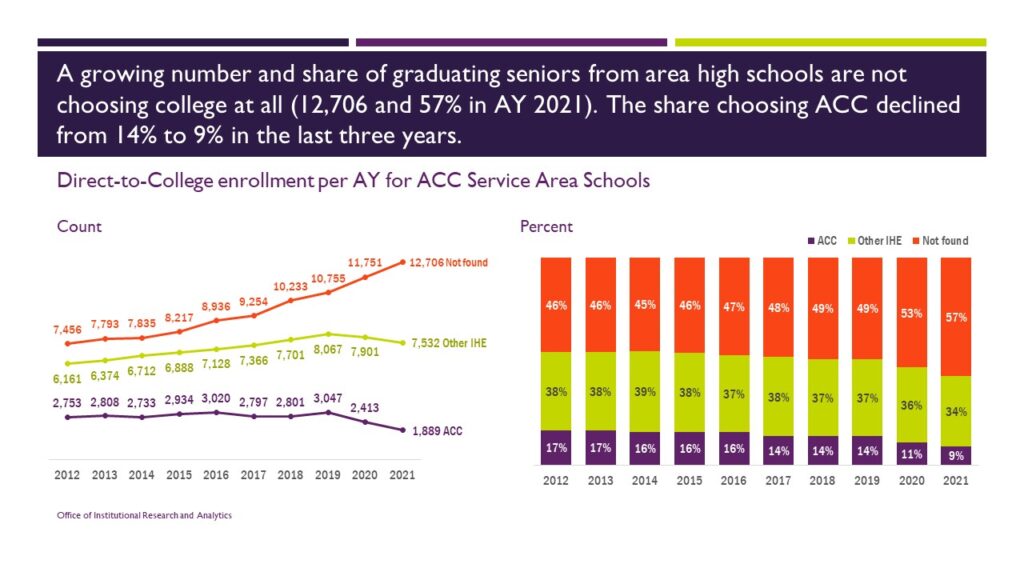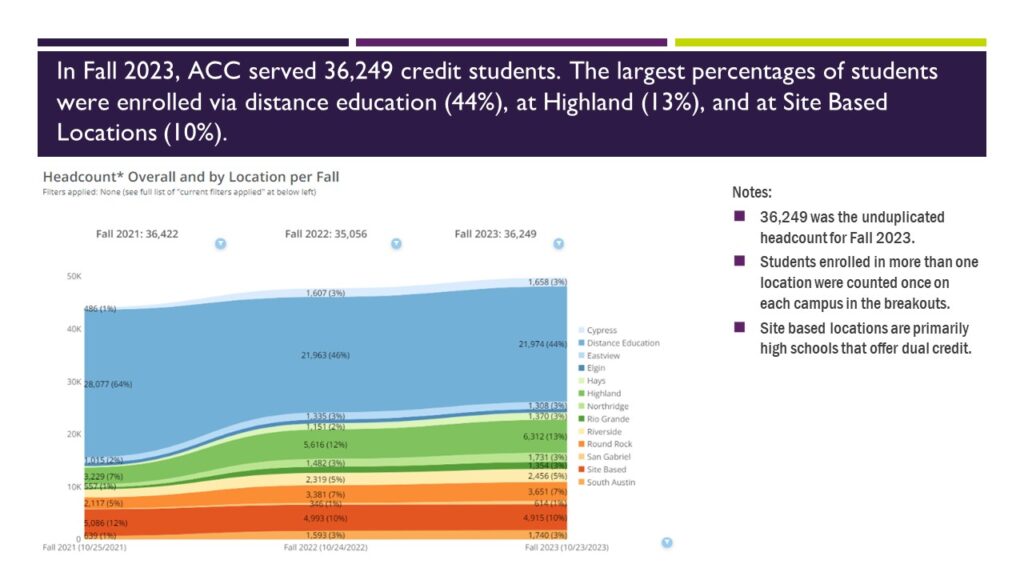During his first month on the job, data has been a recurring topic of discussion for ACC Chancellor Dr. Russell Lowery-Hart as he says it will help drive the college’s decisions. The ACC Board of Trustees received an overview of ACC’s student outcomes data at their regular November meeting.
“We need to learn from our data and use it as a tool to get better. I’ve noticed we’re proud of the things we’ve done but not aware of how far behind we are in student outcomes data. Our data tells us we have real work to do,” says Dr. Lowery-Hart.
ACC Vice Chancellor of Institutional Research & Analytics Dr. Jenna Cullinane Hege discussed graduation rates, where students are going if not ACC, and our fall 2023 enrollment numbers.
According to the data, ACC was the fastest-improving college in Texas regarding graduation rates, rising from 7% to 22% in four of the past five years. Our improvements can be partially attributed to case management and regular cohort tracking, reverse transfer, and predictable and proactive degree audits. Additionally, ACC found that meeting with an advisor or academic tutor two or more times in a semester increases student persistence into the next term by 13 percentage points and 7 percentage points, respectively.
However, the data shows these graduation numbers have stalled or dipped at ACC and at each of our peer colleges in Texas. The 2020 cohort will likely be ACC’s first decline in the last six years. View how our graduation rates compare to our peer colleges below.

Another issue is that graduating high school seniors are optioning out of college altogether. In 2012, 17% of area high school seniors chose ACC, 38% chose another institution of higher education, and 46% could not be found. In 2021, ACC’s share declined to 9%, 24% chose another school, and 57%, or 12,706 graduating high school seniors, could not be found enrolled at any Texas college or university.

ACC served 36,249 credit students in fall 2023. The largest percentage of the students (44%) enrolled in online classes, followed by Highland Campus (13%) and site-based locations, which are primarily high schools that offer dual credit (10%).

Dr. Lowery-Hart will use ACC’s data to help inform decisions for the college’s plans and theory of change as part of his first 100 days. He is planning a collegewide data summit in February or March and plans to announce the date before the college closes for winter break.

